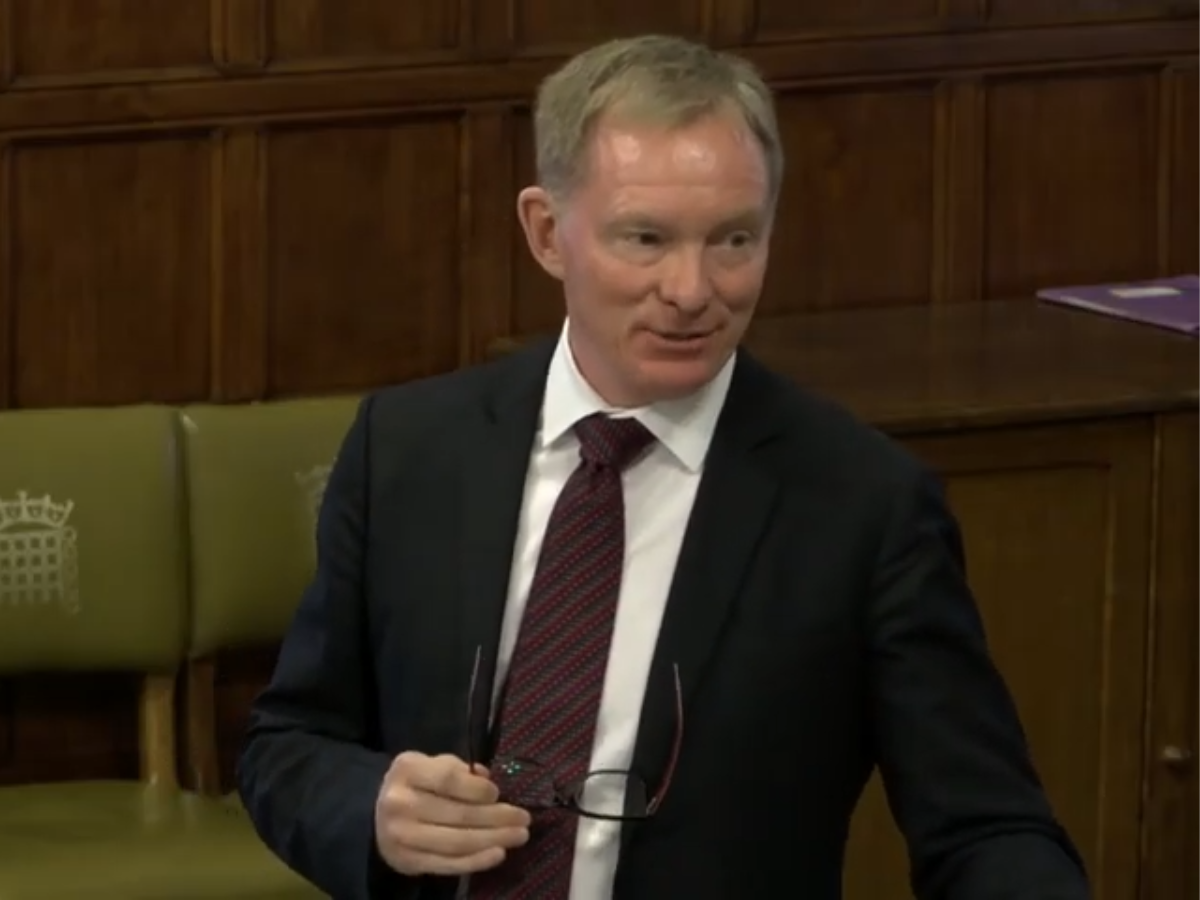
Arts Minister Chris Bryant speaking at a Westminster Hall debate on the secondary ticket market Oct 2024
Photo: House of Commons playback
‘Change is coming’ for ticketing sites warns Bryant
Arts Minister Chris Bryant also said he planned to look at measures for local visitor economies when multiple live events happen in the same area concurrently.
Arts Minister Chris Bryant has said that “change is coming” for online ticket real platforms, warning the likes of Gigsberg, Viagogo, StubHub, Ticketmaster “and all the rest” that “they should start getting ready for it because that is what we are determined to deliver”.
Speaking at a Westminster Hall debate on secondary ticketing, Bryant said Labour was “absolutely determined to implement” its pre-election manifesto commitments, including a cap on price markups.
In response to criticisms from fellow MPs on the lack of prosecutions by the previous government for those that flout existing ticketing regulations, Bryant said: “One key matter that we will have to get right – if and when we bring forward legislation in this field – is enforcement, because there is no point bringing forward new laws if we cannot enforce them.”
He continued: “That is why we will launch a consultation in the very near future, and I very much hope that many honorable members will want to take part in the discussion about precisely how that consultation ends up being framed.”
Bryant said that one of the issues the consultation will look at is what would be a “suitable price cap” that allows people who can no longer attend an event to legitimately resell previously purchased tickets to “recoup not only the cost of the tickets themselves but some additional costs”.
Clarifying that he did not want a complete ban on people reselling tickets, Bryant said: “I note the point that has been made about a [price cap] level of 20%, which some people think is too high.
“Some people think that 10% would be too high; others think it would be too low. We need to make sure we get the level right. And, of course, we will analyse the situation in Ireland,” he said, referencing the Sale of Tickets Act 2021 that came into effect in Ireland in July 2021 and prohibits the resale of tickets for live events, matches, and concerts above their face value.
Looking to Ireland
Sharon Hodgson MP, who first proposed a ticket touting price cap in UK Parliament in 2011, said that Ireland has seen a significant drop in fraud since implementing the act, adding: “For the upcoming Oasis world tour, the only shows for which tickets are not being touted on Viagogo, StubHub and Gigsberg are the two at Croke Park in Dublin.”
Hodgson’s previous private member’s bill argued for capping resales at face value plus 10%.
“The 10% exists to account for booking and postage fees,” Hodgson told MPs. “I have never wanted any fans to be out of pocket, not even for the booking fees.
“I have only ever believed that we need to take out of the reselling of tickets any opportunity to profit, to stop them becoming a commodity that is sold to the highest bidder.”
She added: ”A 20% cap, though, is still too high because it leaves room for touts to operate by still harvesting large numbers of tickets to make large amounts of money.”
Hodgson said that despite “uncontrolled touting taking place on an industrial scale” on online platforms such as Viagogo, “prosecutions were few and far between under the last government”.
“There has not been a single prosecution under the Breaching of Limits on Ticket Sales Regulations 2018, nor have there been any prosecutions for using bots under the Digital Economy Act 2017, despite our securing the Ban the Bots amendment.”
Referencing convictions of two groups of touts led by National Trading Standards, Hodgson said, “Incredibly, although the touts were prosecuted and jailed, the resale platforms faced no such sanctions.
“They kept their cumulative 25% service fees from the illegal transactions – if we do the numbers, we see that means millions of pounds – and they continue to profit from further illicit trading. Where are all the illegal proceeds of crime? Why have they never been recovered?”
Local economies
During the debate, Bryant said it was “highly problematic” that money generated by the secondary resale market does not go back into the creative industries or the local economy.
He also said he wanted to look at the impacts of gigs on an area’s visitor economy after attending a P!nk concert in Sunderland’s Stadium of Light, which coincided with a Sam Fender gig at St James’s Park, Newcastle.
“Interestingly, having two massive gigs at the same time had a dramatic effect on the local economy in the northeast, which is really important,” said Bryant.
“There are issues for the whole visitor economy that need to be looked at, and I had an interesting conversation with all the local authorities and the new mayor, thinking about how we can make sure that the visitor economy works for everybody when such big events are going on at the same time.
“Part of has to be about making sure that the money that is currently going out of the door and never ending up in the local economy does end up there.”
Join the Discussion
You must be logged in to post a comment.